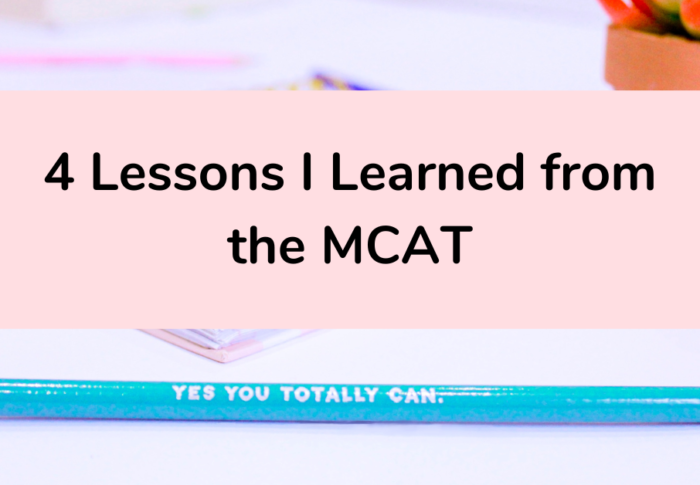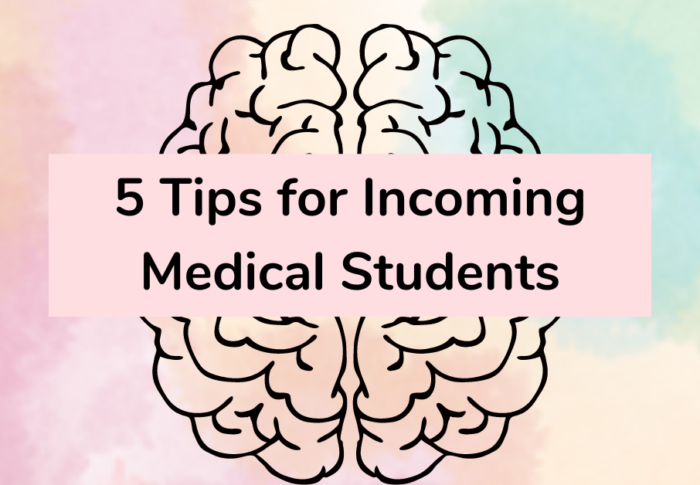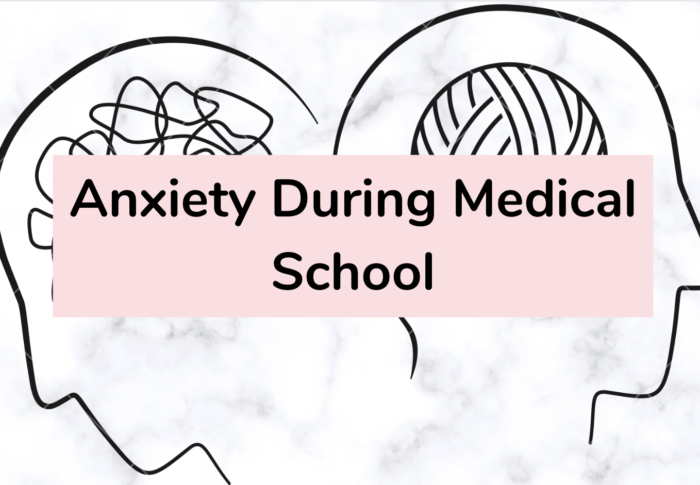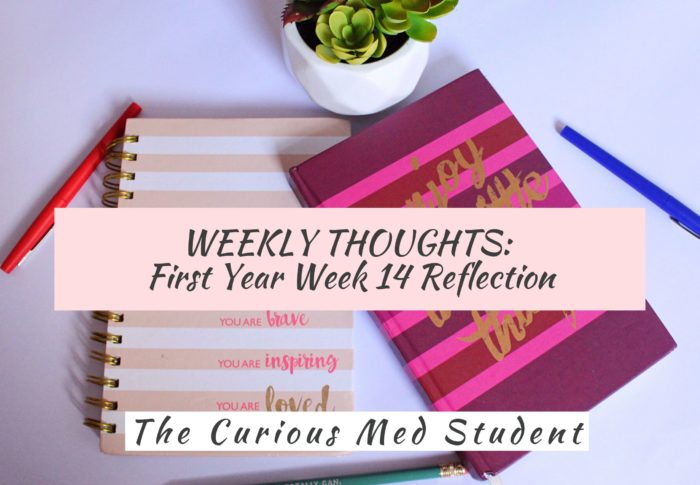
Tracking Your Experiences
One of the most daunting parts of the “pre-med journey” is the actual journey. Fortunately for me, I had a pre-health advisor who was very helpful and prepared me for the application cycle.
To give you an idea, I took my second MCAT attempt in January and began preparing my application materials for my Committee Letter. From there, I decided to take the MCAT a third time because I felt like I could have done better.
I completed my Committee Letter interview in March. I received confirmation that I would have my letter ready prior to the application cycle opening. After this step, I spent my time studying and working until I took the third exam attempt in June.
After going through all those steps, I was very excited to finally be able to fill out my applications and showcase my experiences for the admissions committees. However, the only reason I was able to feel confident was because I was fortunate to have an advisor who prepared me well.
The preparation before the application cycle is absolutely crucial to ensuring that you feel ready for the whole cycle. That being said, I was not perfect in my preparation. In fact, I actually slacked off a tiny bit and wished I was a little more organized to make my life easier.
In the end, I submitted all my primary applications within the first week. I submitted almost all of my secondary applications within two weeks of receiving them and eventually received an acceptance to one of my top choice schools.
These tips will be very helpful if you are just beginning your pre-med journey or if you are in the middle.
1. Practice writing your thoughts.
The best way to figure out your voice for the application is to journal throughout your pre-med years. Despite my love for writing, I definitely did not practice writing prior to my application year.
The only times I journaled were during my sophomore and junior years of college. I spent some time doing more scientific writing through my coursework throughout my undergraduate years.
However, I did most of my reflective writing because of my Global Public Health minor. I was required to write weekly reflections during a four week trip to Mexico. During this time, I remembered how much I enjoyed journaling and writing. I worked on creating scenes and “showing” rather than telling. I was able to learn how I felt about many difficult healthcare related topics and I felt more connected to what I was observing and learning.
Writing your thoughts can also be a cathartic experience and help you figure out some issues you didn’t realize bothered you. To help you practice your writing skills, I created a document to help you journal and reflect on your experiences throughout your pre-med years.
2. Record your hours.
Keep a log of your hours for activities that are meaningful to you! It will save you so much time while filling out the application. Personally, I did not do this step and I had to spend extra time calculating hours based off of pay stubs and various emails.
These hours do not have to be exact, but they do need to reflect the number of hours you spent doing that activity. Do not fake your hours. Admissions committees can tell when you are lying. Integrity is very important so please do not be tempted to exaggerate the hours.
3. Track your supervisors.
In addition to recording your hours, record the following information as well:
Name of Organization
Supervisor’s Contact Information
The supervisor just has to be a person who can confirm your participation with the organization. This person is most likely not going to be contacted unless the admissions committees feel like there is some fishy business.
From my own experience, I was very stressed about the supervisors for a few reasons. Many of the supervisors I knew retired or left the organization before I applied to medical school. I had no idea that I would need a contact for these experiences.
In fact, for one supervisor, I searched my inbox to find her new employment. Then I googled that organization and searched their website for her new contact information. After all that work, I was able to get her new email address, but my email address and phone number auto-filled into my AACOMAS application instead of her contact information.
Despite this mistake, I still received an interview invitation from one of the osteopathic medical schools on my list.
To help you with tips #3 and #4, I created a document to help you track your experiences. This document reflects the AMCAS application almost exactly so you can perfect your experiences here while also recording everything about them.
4. Record all your experiences.
There is a common misconception that you can only include healthcare or science related experiences on your application. The happy reality is that it is completely untrue. Include everything you have done in your undergraduate career from Capstone projects to volunteering to working non-healthcare related jobs.
All these experiences helped create you and ultimately helped you build skills that you will need as a physician.
My application included my job at Build-a-Bear Workshop and my non-healthcare related volunteer position as an ESOL tutor. During my interview, I was able to discuss my experiences as a tutor and the lessons I learned. In addition, I talked a little bit about my experience as a sales associate at Build-a-Bear Workshop because I interacted with people from diverse backgrounds.
If you are still not convinced, I have friends who worked two or three jobs while completing their undergraduate degrees. One of my friends worked as a waitress, in the IT department, and eventually as a scribe. Her experiences as a waitress and as an IT tech were considered just as valuable during her interviews.
Do not worry if your peers have more clinical experience. There are many pre-med social media groups with students who list their accomplishments. Pay no attention to their statistics. If anything, focus on the types of experiences they might have gotten and see if those are activities you would want to do.
In the end, it’s all about what you’ve learned and how you’re going to use those skills and experiences to become a physician!
The Official Application
When you begin preparing for the official AMCAS application, you will need to fine tune the 15 experiences. You do not need to have 15 experiences so do not exaggerate any activities.
In my own journey, I reflected on my activities throughout my undergraduate years because my pre-med advisor asked me to before our meetings. I still struggled with writing these experiences, but managed to have 15 for my AMCAS application.
Tracking Experiences Document
To make your life easier, I created a document that reflects the AMCAS application. Access to this document is through Google Drive. Go to “File” and “Make Copy” to save your version to your Google Drive. I have also created a PDF version that you can print out. Another option is the Microsoft Word version which can be saved if you prefer that.
Google Drive: https://docs.google.com/document/d/1oJ5MrOBipoyABLxji71_UPhTPKDqW6_3JomdnxysEyw/edit?usp=sharing
Microsoft Word: Experience Tracking_ Application Ready






